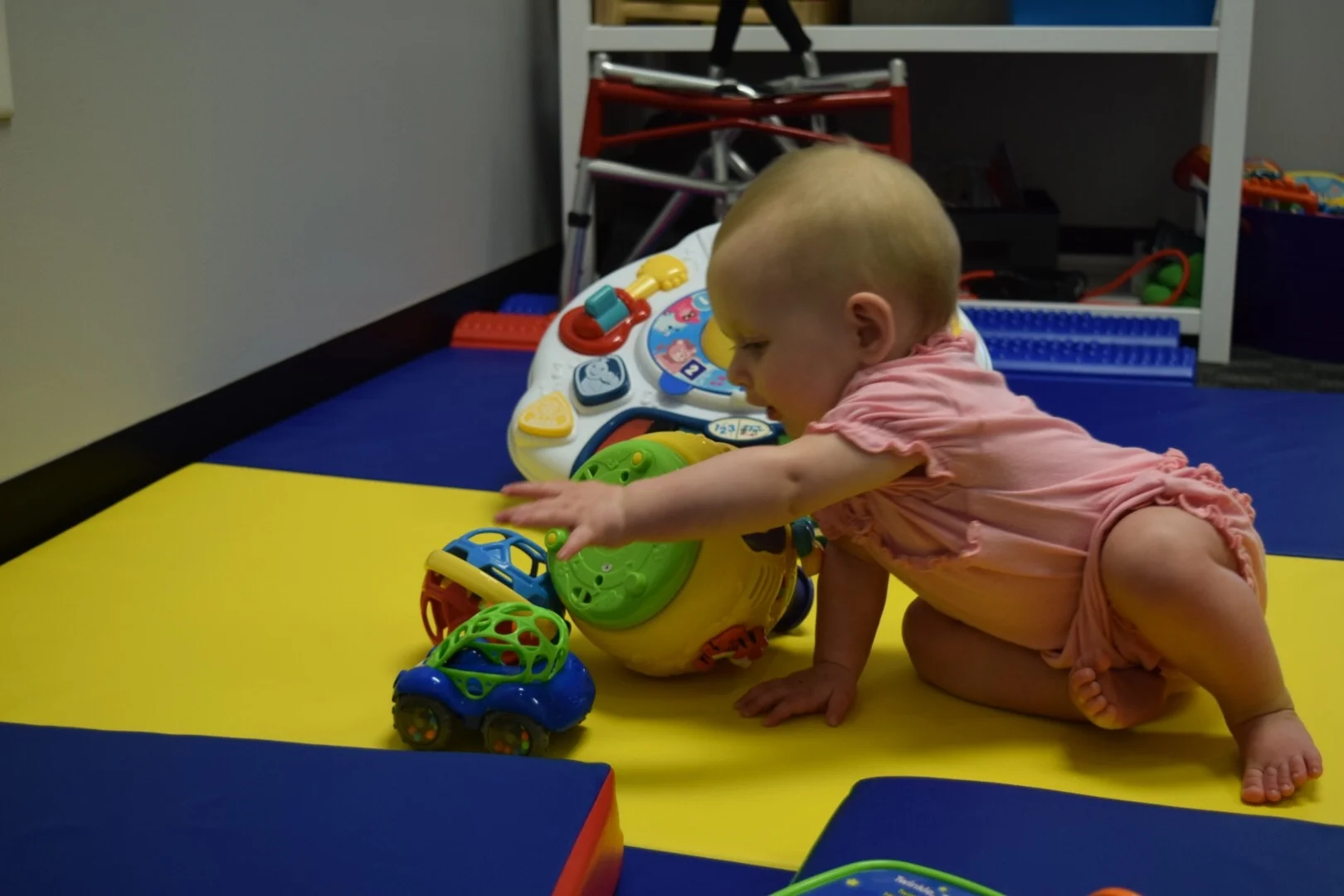Pediatric Physical Therapy Services
Pediatric physical therapists evaluate and treat motor dysfunctions to help children achieve typical gross motor development. Physical therapists assess how a child moves, in addition to a child's flexibility, strength, balance and coordination skills. Pediatric physical therapists address common motor developmental delays including rolling, sitting, crawling, standing and walking. Physical therapists are also trained to assist children who may have neurological or genetic disorders. In addition to children who have abnormal muscle tone, poor posture, awkward walking, jumping or running patterns. Pediatric physical therapists also work with babies who have torticollis and plagiocephaly. They teach and empower parents to perform exercises at home with their children. Physical therapy treatment sessions are always play-based so that the child is motivated to participate in activities that are physically challenging.
Gross motor issues that pediatric physical therapists specialize in assessing and treating may include:
Torticollis & Plagiocephaly (asymmetrical head/neck positioning and skull shape)
Abnormal muscle tone including: Hypotonia (low muscle tone and strength), Hypertonia (increased muscle tone with tight muscles and stiffness)
Poor posture and body alignment
Muscle tightness and weakness
Poor balance and stability
Joint instability or ligament laxity
Pre-gait and gait abnormalities (including: toe walking, flat feet, awkward walking patterns)
Locomotion patterns (asymmetrical crawling patterns, poor running form and speed, etc.)
Poor coordination and clumsiness
Neuromuscular function and delays
Reduced endurance
Poor safety awareness with navigation skills
Delayed gross motor developmental skills
Pain and musculoskeletal injuries
Orthotics/bracing referrals

